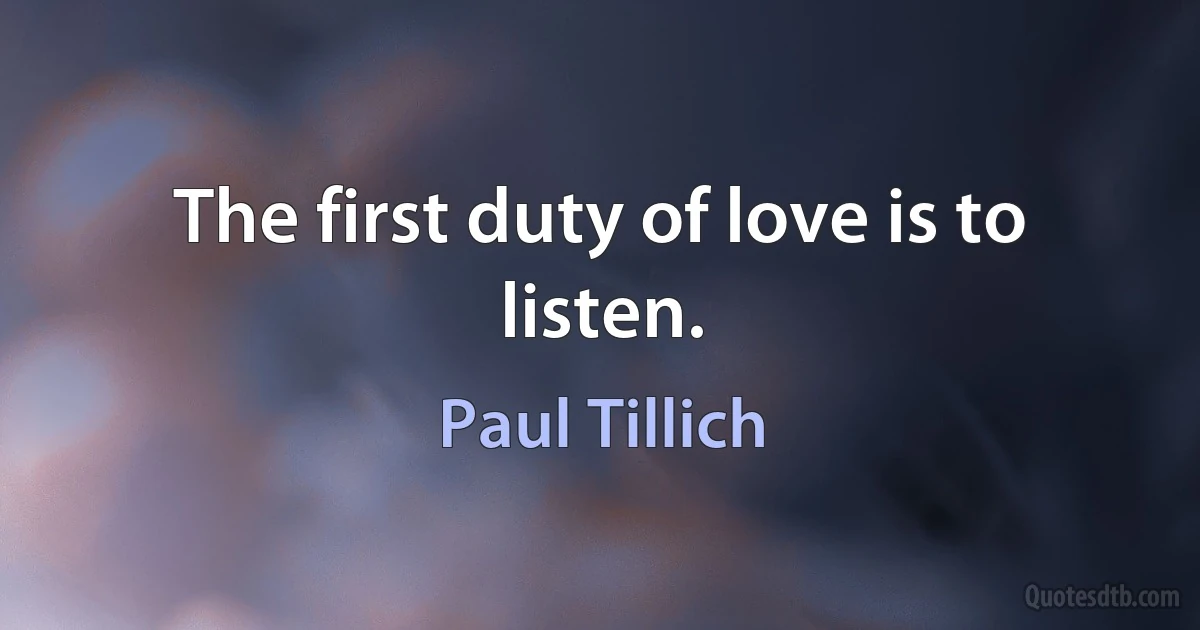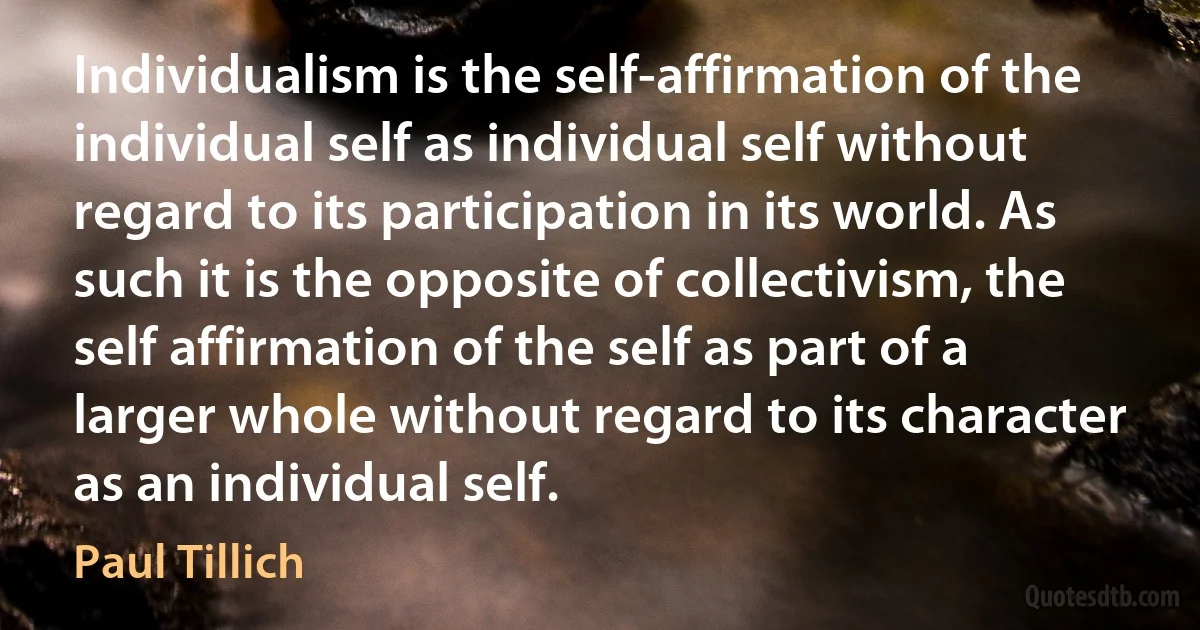Paul Tillich quotes
Paul Tillich was a German-American theologian and philosopher, recognized for his influential works on existentialist theology. His ideas bridged the gap between faith and modern philosophy, integrating religion with contemporary culture. He is remembered for his concept of the "courage to be" and for shaping twentieth-century religious thought. Here are 87 of his quotes:
In a man like Friedrich von Schlegel the courage to be as an individual self produced complete neglect of participation, but it also produced, in reaction to the emptiness of this self-affirmation, the desire to return to a collective. Schlegel, and with him many extreme individualists in the last hundred years, became Roman Catholics. The courage to be as oneself broke down, and one turned to an institutional embodiment of the courage to be as a part.

Paul Tillich
The courage to be as oneself within the atmosphere of Enlightenment is the courage to affirm oneself as a bridge from a lower to a higher state of rationality. It is obvious that this kind of courage to be must become conformist the moment its revolutionary attack on that which contradicts reason has ceased, namely in the victorious bourgeoisie.

Paul Tillich
[American] conformism might approximate collectivism, not so much in economic respects, and not too much in political respects, but very much in the pattern of daily life and thought. Whether this will happen or not, and if it does to what degree, is partly dependent on the power of resistance in those who represent the opposite pole of the courage to be, the courage to be as oneself.

Paul Tillich
One of the unfortunate consequences of the intellectualization of man's spiritual life was that the word "spirit" was lost and replaced by mind or intellect, and that the element of vitality which is present in "spirit” was separated and interpreted as an independent biological force. Man was divided into a bloodless intellect and a meaningless vitality. The middle ground between them, the spiritual soul, in which vitality and intentionality are united, was dropped.

Paul Tillich
Dialectics is the way of seeking for truth by talking with others from different points of view, through "Yes" and "No," until a "Yes" has been reached which is hardened in the fire of many "No's" and which unites the elements of truth promoted in the discussion. It is most unfortunate that in recent years the name "dialectical theology" has been applied to a theology that is strongly opposed to any kind of dialectics and mediation and that constantly repeats the "Yes" to its own and the "No" to any other position. This has made it difficult to use the term "dialectical" to denote theological movements of a really dialectical, that is a mediating, character; and it has resulted in the cheap and clumsy way of dividing all theologians into naturalists and supernaturalists, or into liberals and orthodox. The Protestant Era by Paul Tillich 1948 Introduction.

Paul Tillich
Paul Tillich
 Occupation: German-American Theologian
Occupation: German-American Theologian
Born: August 20, 1886
Died: October 22, 1965
Quotes count: 87
Wikipedia: Paul Tillich











